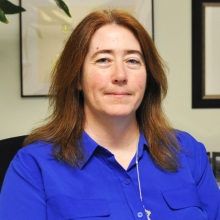Innovative Dual Degree Integrates Veterinary Medicine, Environmental Studies

The School of Arts and Sciences and the School of Veterinary Medicine (Penn Vet) have launched a new Doctor of Veterinary Medicine (VMD) - Master of Environmental Studies (MES) dual-degree program. This option is designed to prepare multi-disciplinary veterinarians to assume leadership roles within the environmental and public health sectors.
The new VMD-MES program reflects the growing recognition of the inextricable link between wildlife, food animal habitats, and the environment. Contextual environmental factors are often a significant, contributing factor in animal-to-human disease transmission. Toxic minerals, chemicals, soil destruction, and climate change can negatively impact landscapes and animal populations. The VMD-MES option provides veterinary students with a deeper understanding of the environmental context of animal population health.
MES program director Yvette Bordeaux notes the dual-degree program is the natural next step in the evolution of the OneHealth perspective at Penn. “We are the last piece of that puzzle. Penn Vet and Medicine have been working together for a while. Now we are bringing in the environmental piece. I’m very excited about the program, and students are, too.”
The VMD-MES joins a number of other unique dual-degree options at Penn Vet that integrate veterinary medicine with other scientific and professional disciplines, including a new VMD-Master of Social Work (MSW), also launching this year. Jennifer Punt, VMD, PhD, Associate Dean of One Health at Penn Vet, notes, “Veterinarians have always played important roles in public health, human health, and welfare. Current events have only underscored the importance of our profession in interprofessional efforts to tackle these complex health challenges. Our new dual degrees join the visionary VMD-PhD, VMD-MPH, and VMD-MBA programs, and they reflect the novel need for veterinarians to engage in interdisciplinary problem solving at the critical juncture of human health, environmental health, and animal health and welfare. Our first cohort of students in these programs are already transforming expectations for the future; we couldn’t be more excited for them and with them.”





